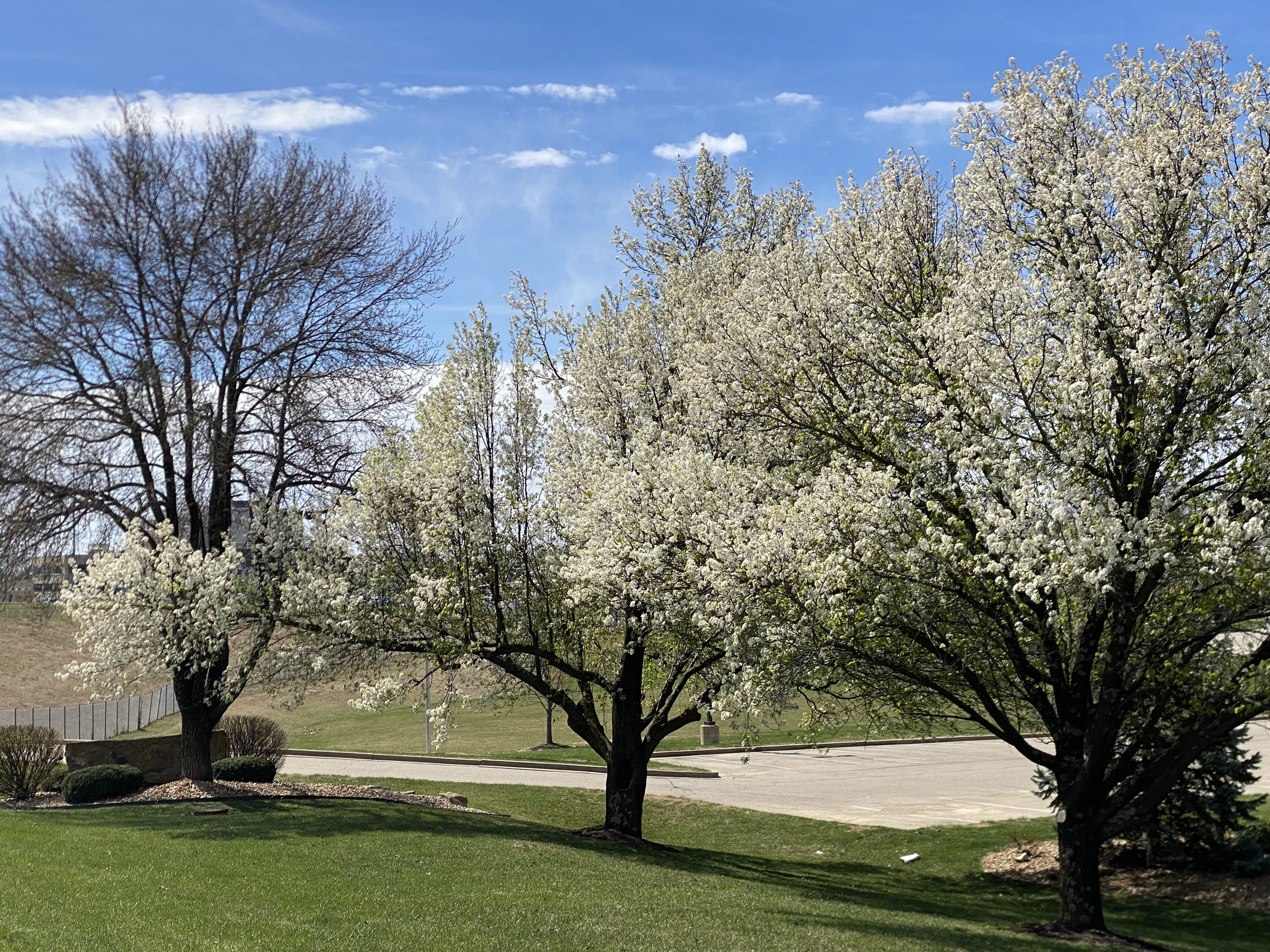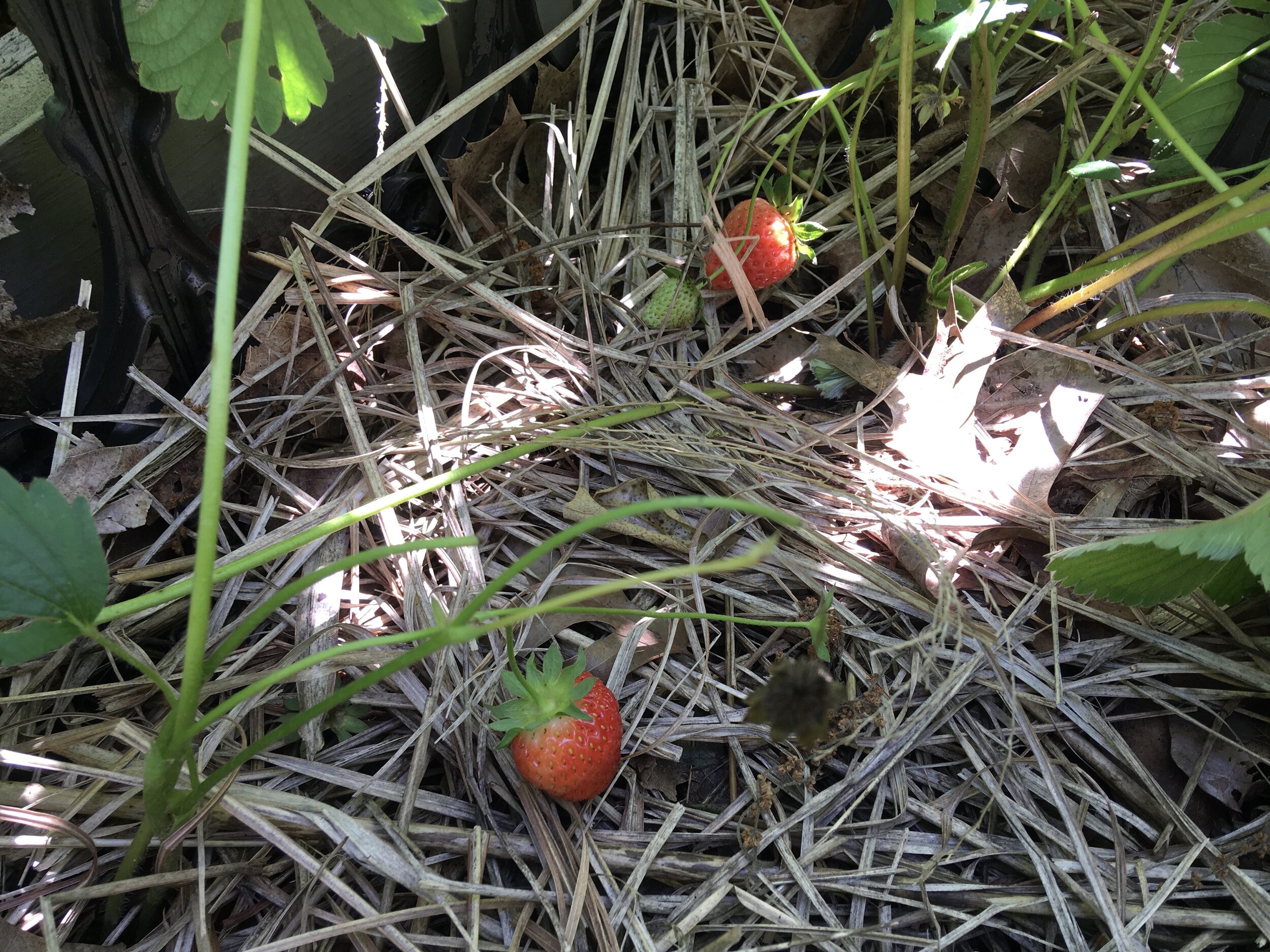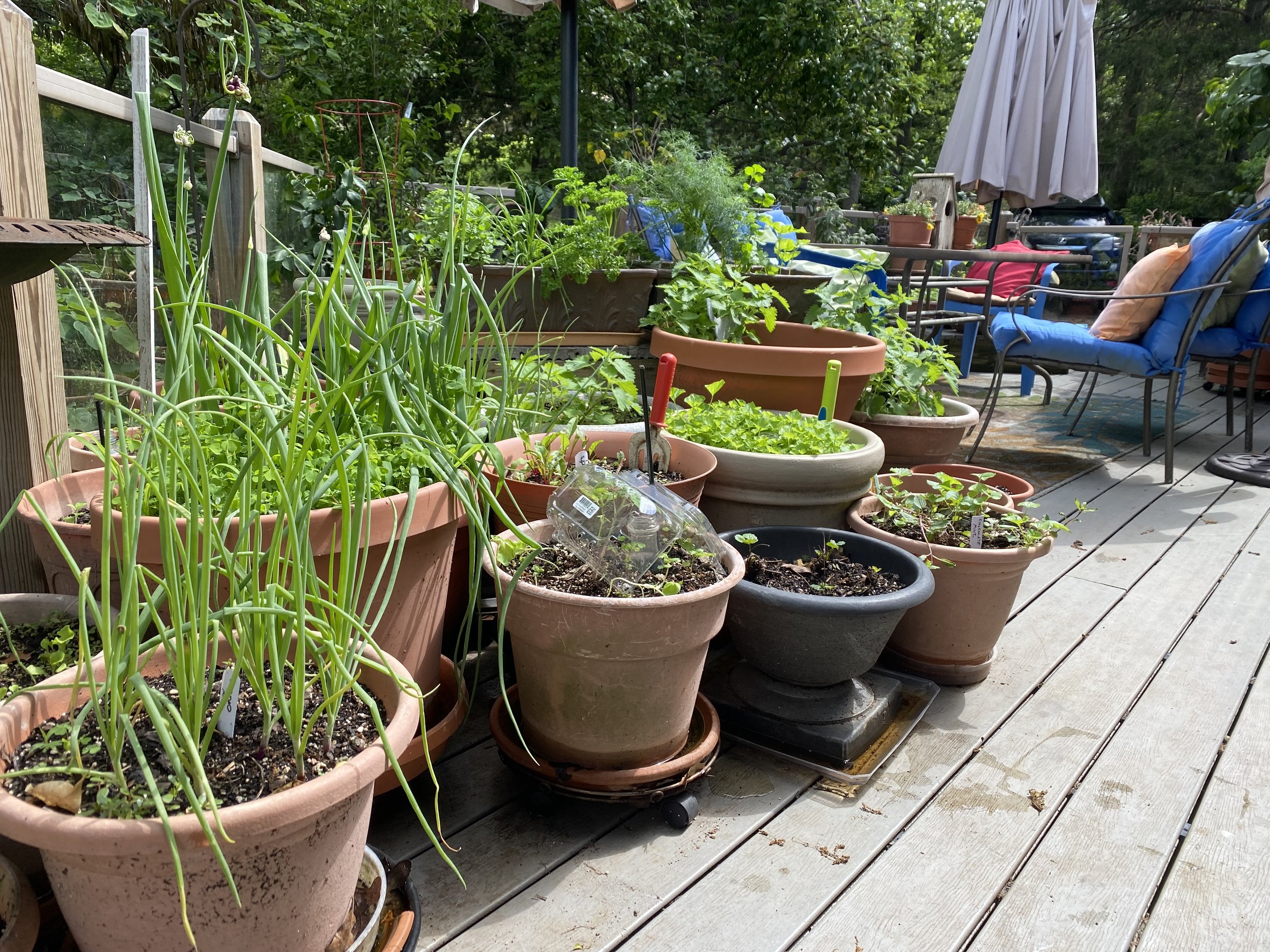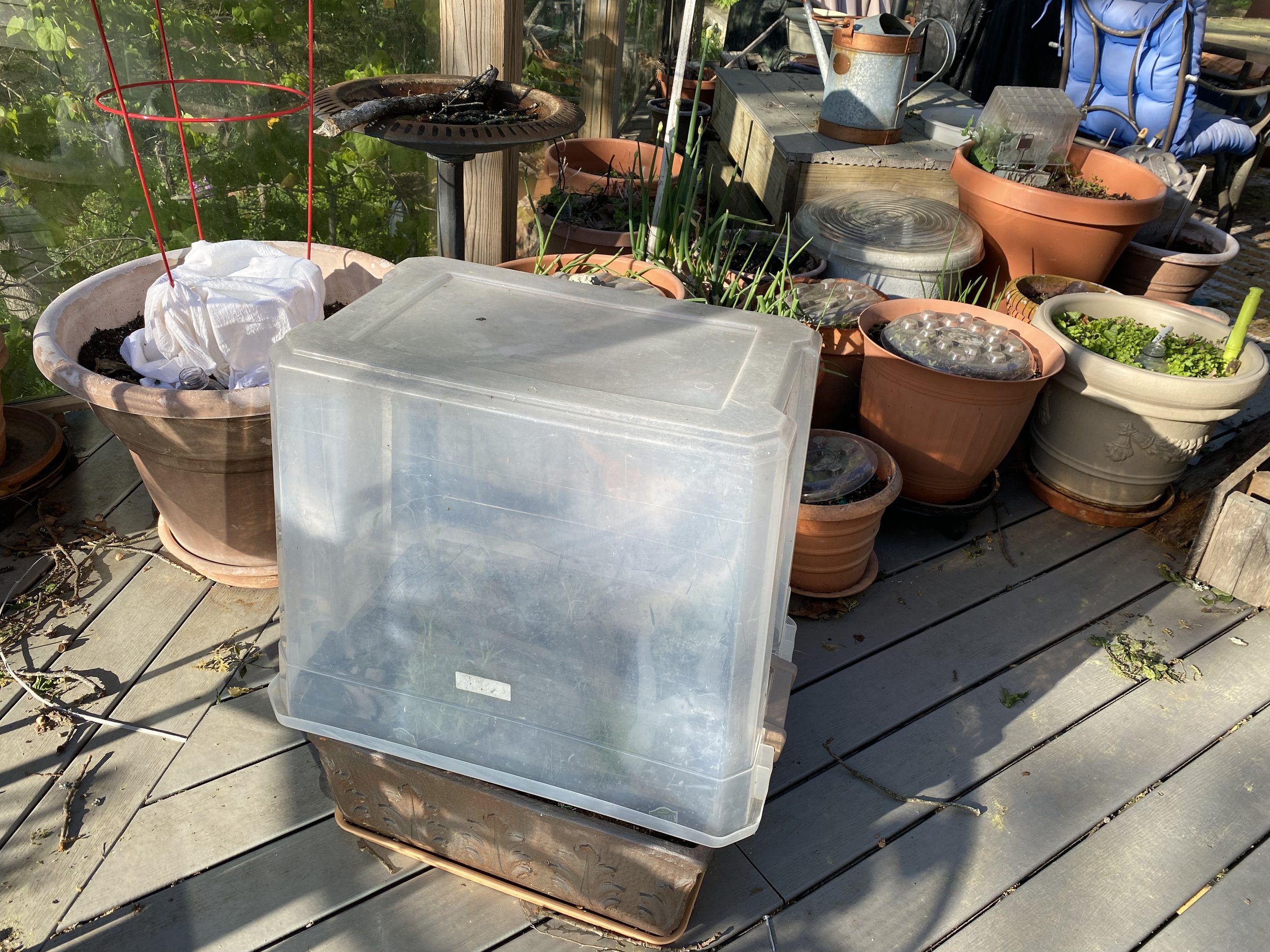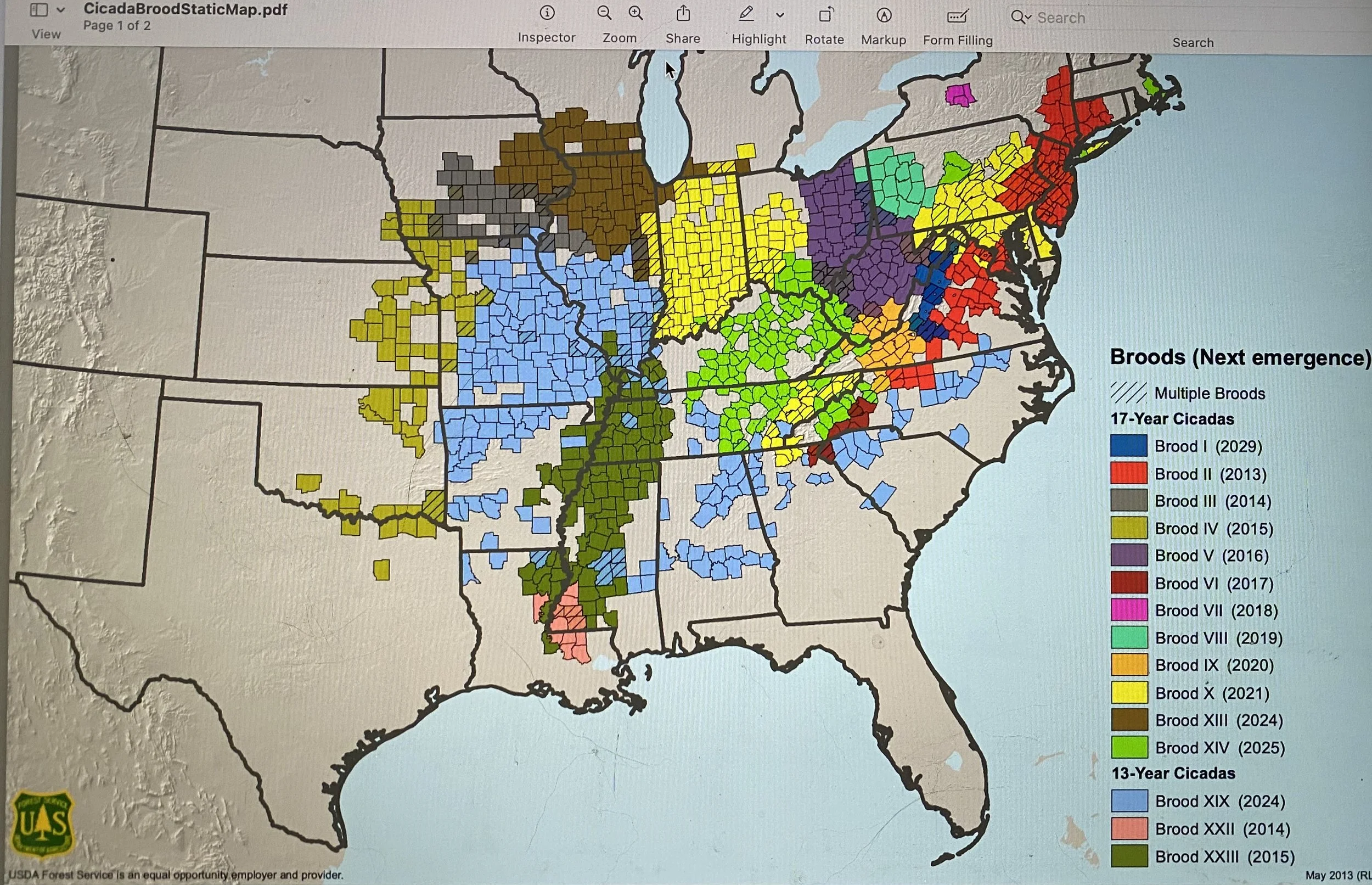Winter Mulch; Protecting Plants
/A new supply of free recycling center wood chips are wintering over for next year use. (charlotte ekker wiggins photo)
Winter Mulch; Protecting Plants
Winter is a resting time for both gardeners and gardens. One of the last garden activities should be to mulch, which can be the difference between surviving and thriving in spring. Mulching during winter is more than a routine task; it's a strategic defense mechanism that shields your garden from harsh elements while nurturing soil beneath the frosty surface.
Here are crucial steps to effectively mulch your garden over winter and why they're vital for a spring flourishing garden.
Apply a Layer of Compost: Before mulching, apply a thin layer of compost to provide additional nutrients to the soil. Compost enriches the soil, supporting microbial activity and enhancing overall soil health.
Select the Right Mulch Material: Choose appropriate mulch materials such as straw, shredded leaves, wood chips, or pine needles based on your garden's needs. Different materials offer varying insulation, moisture retention, and nutrient benefits.
Mulch Around Plants and Trees: Apply mulch around the base of plants, leaving a small gap between the mulch and plant stems or trunks. This helps retain moisture, regulates soil temperature, and inhibits weed growth.
Layer Mulch Appropriately: Layer mulch at a sufficient depth (typically 2-4 inches) to provide insulation without smothering plants. Thicker mulch layers insulate better but ensure proper air circulation to prevent issues like rot.
Focus on Vulnerable Areas: Pay extra attention to vulnerable areas, such as newly planted trees or shallow-rooted plants. These areas require thicker mulch layers to protect them from freezing temperatures.
Avoid Mulch Piling against Stems: Ensure that mulch doesn’t directly touch the stems or trunks of plants and trees. Direct contact can invite pests and diseases while potentially causing stem rot.
Monitor and Refresh Mulch as Needed: Periodically check the mulch throughout winter. If it thins out due to weather conditions or decomposition, add a fresh layer to maintain adequate protection.
Reap the Benefits in Spring: Understand that these steps aren't just about surviving winter but setting the stage for a vibrant garden in spring. Mulching conserves moisture, prevents soil erosion, and promotes healthy soil, ensuring a bountiful growing season ahead.
The careful application of mulch during winter is an investment in the future health and beauty of your garden.
For more gardening, beekeeping, cooking and easy home decor tips, subscribe to Garden Notes.
Charlotte


